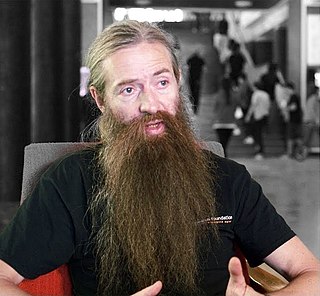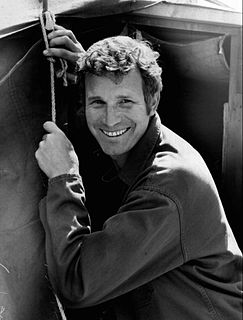A Quote by C. S. Lewis
In reality, moral rules are directions for running the human machine. Every moral rule is there to prevent a breakdown, or a strain, or a friction, in the running of that machine. That is why these rules at first seem to be constantly interfering with our natural inclinations.
Related Quotes
We hated Bauhaus. It was a bad time in architecture. They just didn’t have any talent. All they had were rules. Even for knives and forks they created rules. Picasso would never have accepted rules. The house is like a machine? No! The mechanical is ugly. The rule is the worst thing. You just want to break it.
Not far from here, by a white sun, behind a green star, lived the Steelypips, illustrious, industrious, and they hadn't a care: no spats in their vats, no rules, no schools, no gloom, no evil influence of the moon, no trouble from matter or antimatter - for they had a machine, a dream of a machine, with springs and gears and perfect in every respect. And they lived with it, and on it, and under it, and inside it, for it was all they had - first they saved up all their atoms, then they put them all together, and if one didn't fit, why they chipped at it a bit, and everything was just fine.
f the injustice is part of the necessary friction of the machine of government, let it go, let it go; perchance it will wear smooth - certainly the machine will wear out... but if it is of such a nature that it requires you to be the agent of injustice to another, then I say, break the law. Let your life be a counter-friction to stop the machine. What I have to do is to see, at any rate, that I do not lend myself to the wrong which I condemn.
I think there's a fundamental moral issue about whether it's right for a machine to decide to kill a person. It's bad enough that people are deciding to kill people, but at least they have perhaps some moral argument that they're doing it to ultimately defend their families or prevent some greater evil.
The ethical rule is from Samuel Johnson who believed that maintenance of easily removable ignorance by a responsible office holder was treacherous malfeasance in meeting moral obligation. The prudential rule is that underlying the old Warner & Swasey advertisement for machine tools: "The man who needs a new machine tool, and hasn't bought it, is already paying for it". The Warner & Swasey rule also applies, I believe, to thinking tools. If you don't have the right thinking tools, you, and the people you seek to help, are already suffering from your easily removable ignorance.
What differentiates human from lower-animal consciousness is time. You can't explain the concept of "tomorrow" to your dog. Our consciousness is dominated by time - We're constantly running simulations of the future. Our brain is a prediction machine. The hallmark of intelligence, indeed of genius, is the number and complexity of the feedback loops we use in predicting the future.
There are three distinct kind of judges upon all new authors or productions; the first are those who know no rules, but pronounce entirely from their natural taste and feelings; the second are those who know and judge by rules; and the third are those who know, but are above the rules. These last are those you should wish to satisfy. Next to them rate the natural judges; but ever despise those opinions that are formed by the rules.
It is paltry philosophy if in the old-fashioned way one lays down rules and principles in total disregard of moral values . As soon as these appear one regards them as exceptions, which gives them a certain scientific status, and thus makes them into rules. Or again one may appeal to genius , which is above all rules; which amounts to admitting that rules are not only made for idiots , but are idiotic in themselves.




































